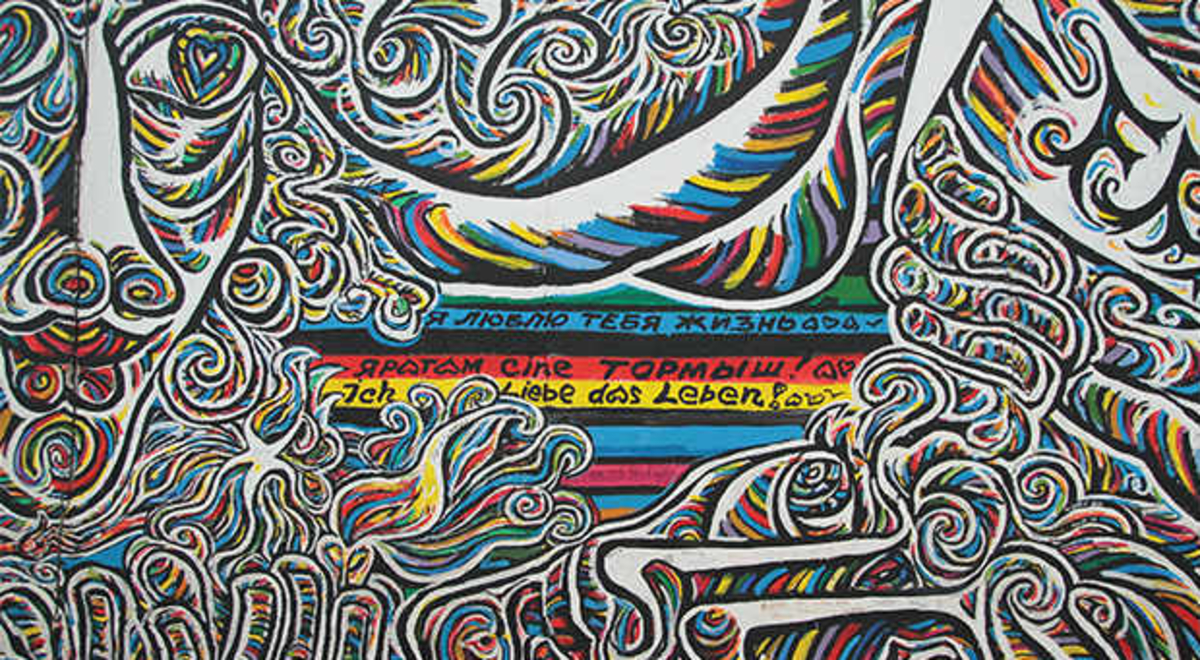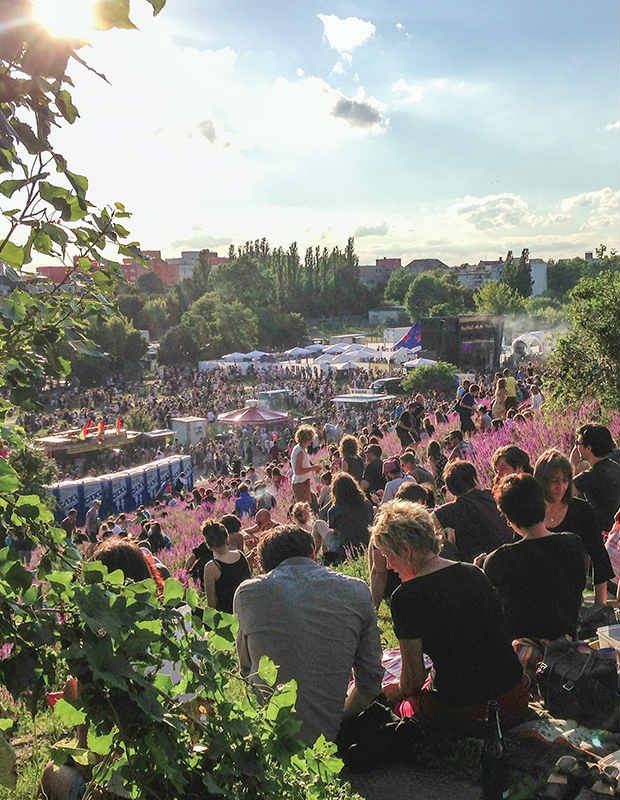
What to do in Berlin? Questions, questions. Yet, the ultimate city break in Berlin awaits your exploration! Get lost in Berlin’s unrivalled culture, attractions, landmarks, history, and arts scene and see what makes Berlin the epicentre of cool.
1. Mauerpark

Ever felt like your karaoke rendition of “I Have Nothing” by Whitney Houston needed a massive audience to appreciate your vocal range? Take yourself to Mauerpark’s amphitheatre where every Sunday there’s open-air karaoke. Amateur singers from around the globe gather in the ‘bear pit’ and perform the hits (and misses) we all love and love to hate. Beware - it’s been said that Mauerpark holds a tough crowd - so be sure to bring the house down.
For a less intimidating experience, hop over to the outdoor flea market. It’s right next to the park and known for its stalls of vintage goods, handmade t-shirts, vinyl records, bicycles, household items, and all kinds of various things sold by local artists and Berliners. Find yourself in the beer garden and enjoy lunch from one of the food stalls that sell everything from vegan gyros to crepes to burgers and pasta to sandwiches.
Make a full day out of Mauerpark for some green space, flea market finds, and karaoke.
2. Hüttenplast
There are two types of people: the ‘outdoorsy’ crowd and the slightly less outdoorsy crowd who enjoy the outdoors but do not wish to directly interact with nature. In Berlin, there’s a hotel that caters to both crowds. Hüttenplast brings the beauty of the outdoors inside. Once a vacuum cleaner factory, Hüttenplast stands today as a lofty, unique 2,000-square-foot vintage caravan hotel. Guests can spend the night in a refurbished Airstream-like caravan, cozy wooden cabin, or factory room. Outside of your caravan or cabin is your living room and a whimsical ‘outdoor’ space lined with what else but indoor plants, and furnished with outdoor furniture, lawn chairs, and hammocks. The Hüttenplast beats the traditional hotel stay with a one-of-a-kind experience that will sure to be an experience on its own as you explore Berlin.
3. Kraftwerk Berlin
From turbines to techno, Kraftwerk Berlin has seen the times change, and is on the coolest list of Berlin attractions. In its past life, Kraftwerk Berlin was the Mitte power plant. Built between 1961 and 1964, Mitte powered the East German regions of Berlin. It was abandoned in 1997 when another power plant opened. In 2006, Mitte re-opened its doors as Kraftwerk Berlin, a 235,000-square-foot concrete and steel event space which houses the massive 86,000-square-foot techno club Tresor. Kraftwerk Berlin is also a space used for exhibitions, concerts, arts festivals, and symposiums.
4. GDR Apartment Museum
When you visit a city with as much history as Berlin, the opportunities to stumble upon a unique historic site like this are few and far between. The Museumswohnung was originally built during the GDR housing crisis of the 1970s and 1980s. When the building was due for renovations in 2000, the local housing committee agreed to update all of the apartments - except for one. One apartment was left untouched. All of the contents from the furniture, to fixtures, a colour television, a kitchen apron, and books, to the insides of the kitchen cupboards remain preserved and intact. One of the best-selling painting reproductions of the GDR, “Am Strand” by German Socialist Realist artist Walter Womacka, hangs on the wall in the living room. Located in Hellersdorf, the museum is open Sundays from 2 pm to 4 pm, or by appointment. Admission is free.
5. Brandenburg Gate & the Berlin Wall
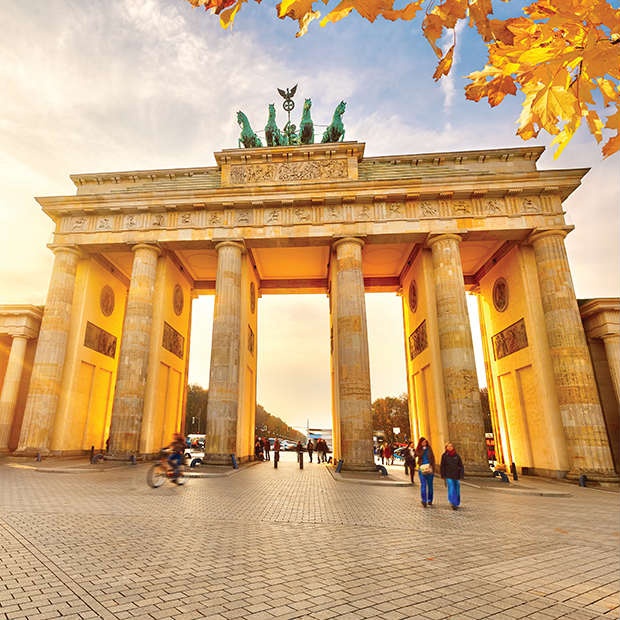
One of the most recognizable landmarks in Berlin, the Brandenburg Gate is the city’s only surviving historical city gate. The Gate originally divided East and West, but today it represents the reunification of Germany. When the Berlin Wall went up in 1961, Brandenburg Gate stood in a kind of grey zone in the division between Germany and Berlin. It was inaccessible. When the Wall came down in 1989, the Gate was the gathering spot for thousands and thousands of people to celebrate the official opening. Constructed between 1788 and 1791 by architect Carl Gotthard Langhans, the design was inspired by the gateway at the entrance to the Acropolis in Athens. The Brandenburg Gate is a must-see.
6. Checkpoint Charlie
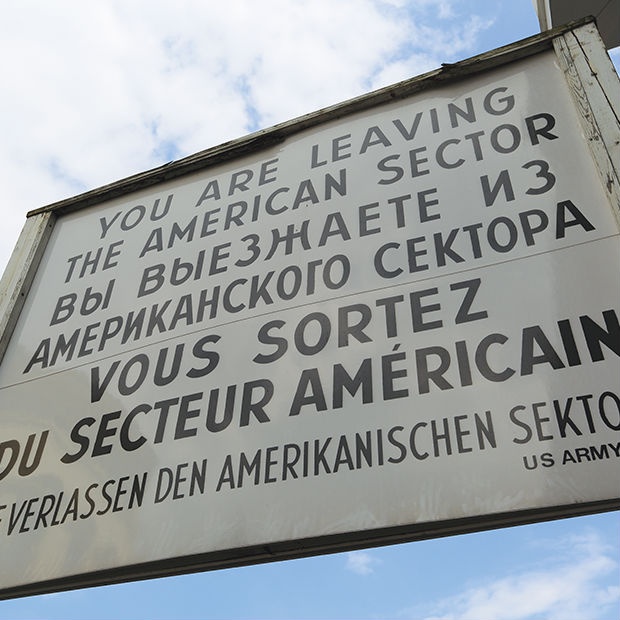
Checkpoint Charlie played a significant role in the history of Berlin. In 1961 during the Cold War, this former border crossing checkpoint separated East and West Germany and served as a barrier, keeping East Germans from fleeing the Communist state to the democratic West. It was the site of a famous stand-off between the Americans and East Germans which escalated into a showdown of which side had bigger, badder tanks. Some 16 hours later, the Americans and Germans finally backed down but not until the US president JFK and Soviet leader Nikita Khruschev intervened and asked the two sides to break it up.
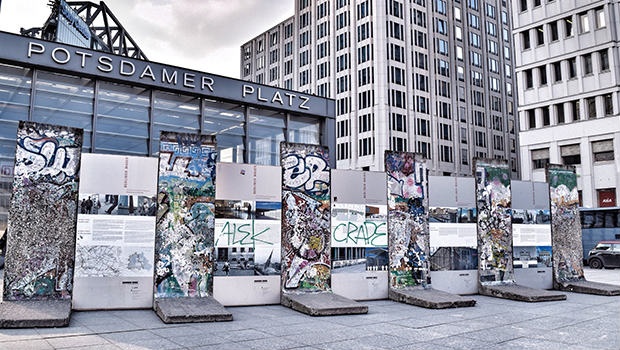
After the fall of the Berlin Wall in 1989, East Germans were freed and flooded the gates in masses. The original site has a replica of the checkpoint booth, but the original guardhouse sits on display at the Allied Museum in Berlin.
Checkpoint Charlie was the third checkpoint opened, named after the third letter in the NATO phonetic alphabet, following Checkpoint Alpha and Checkpoint Bravo.
7. Kreuzberg
The unofficial kingdom of cool, Berlin is Germany's epicentre of trendsetting. This Berlin tour marries art with food, and there's no better place for a union like this than the creative enclave of Kreuzberg.
Sample from the many delightful Turkish eateries (pun very much intended), shop for vintage gems at Nowkölln Flowmarkt and Pick & Weight, and don’t miss out on a chance to tour East Side Gallery, the world’s longest open-air art collection. However you decide to experience Kreuzberg district, it’s impossible to go wrong.
8. Jewish Quarter
Trace the story of Berlin's Jewish community on a guided walking tour. Start with an afternoon at Juedisches Museum Berlin, Europe’s largest Jewish history museum.
Next up, meet a local guide in Berlin's Jewish quarter to get up close and personal with Berlin’s Jewish cultural history going back all the way to the 13th century.
Journey to important sites like the golden-domed New Synagogue, Hackesche Höfe in the Mitte district, the Anne Frank Centre, the Liebermann Villa at Wannsee.
Ready to see what the buzz is all about in Berlin?

